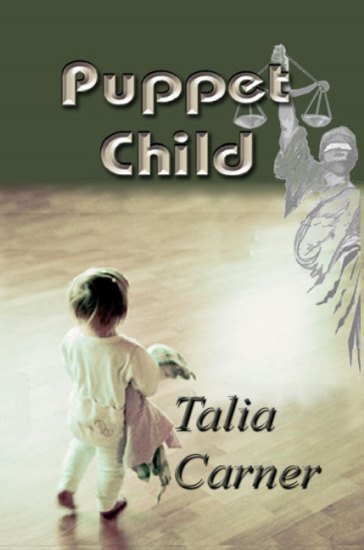NOTE: If you are an activist or a protective parent interested in presenting the Protective Parent Reform Act (PPRA) to a legislator, lawmaker, or a group of activists, Talia Carner has prepared a PowerPoint presentation. This presentation includes important research that refutes the myths of PAS (Parental Alienation Syndrome) and other misconceptions about false allegations.
For the original Microsoft PowerPoint version, which you can edit, please write to AuthorTalia [at] aol [dot] com. It is Talia’s public service, provided at no charge.
History of the Act
With the growing interest in PUPPET CHILD, author Talia Carner was asked by a Congressman to brief him on the ills of family courts across the nation. She did, while also suggesting Federal legislative remedies. The Congressman introduced her to some of his fellow representatives. Encouraged by their shocked interest, Carner asked Richard Ducote, a now-Pittsburgh-based attorney, who had tried custody cases in over 40 states, to draft the proposed legislation to help parents who try to protect their children from being sexually abused by the other parent.
Mr. Ducote (then in New Orleans) designed the Protective Parent Reform Act as a supplement to the Federal Child Abuse Protection and Treatment Act (CAPTA).
For now, the Congressional activity is not public, while across the nation activists are taking the PPRA draft to their STATE legislators. In May 2004, a courageous mother helped pass The Protective Parent Reform Act in Tennessee. In 2008, the Act passed in Oklahoma. Various clauses of the Act have been signed into law in various states, such as in NY in September 2008.
- In September 2004, Karen Hartley-Nagle announced her running for Delaware State Senate District 17 on the PPRA platform.
- For the 2006 election, Paul Griffin ran for the Maryland House of Delegates on the PPRA platform.
- Since then, the PPRA has been presented in front of many legislators. (Watch Donna Roberts presentation in Kansas.)
It is rare for a work of fiction to make a difference in society, yet PUPPET CHILD has been doing just that.
Proposed Federal Legislation
Conceived by author Talia Carner
Drafted by Richard Ducote, Esq.
1 Allegheny Square, #455
Pittsburgh, PA 15212
(412) 322-0750
Ducotelaw [at] aol [dot] com
42 United States Code § 5105a. Protective Parent Reform Act
This Act shall be known as the “Protective Parent Reform Act.” The purpose of this Act is to correct the trend in child custody and visitation cases wherein abused children, and children in homes where domestic violence exists, are placed by courts in the custody of the abusive or violent parent with the protective parent’s custody, visitation, and contact with the child limited.
For any State or public agency to receive any assistance under the provisions of §§5106, 5106a, 5106(c), or 5116, for fiscal year 2005 and any year thereafter, the State or the State in which the public agency applicant is situated must demonstrate that effective June 1, 2005, the following safeguards have been effected and implemented either by statutory enactment or court rule promulgated by the highest court in the State, with such enactment or court rule applicable statewide in every court having jurisdiction over child custody, parental visitation, parenting time, parenting plans, conservatorship of children, or any other issue involving the residence of a child and the contact between the child and his or her parents, incidental to or following separation or divorce, or in connection with a paternity case where the parents have were not married, to ensure that a parent who reasonably believes that his or her child is threatened by child abuse or domestic violence, perpetrated or allowed by the other parent is not punished by the court, or otherwise penalized by loss or limitation of custody, contact, or visitation with his or her child, or the child denied the custody and contact with that parent, for that parent’s having such reasonable belief and for acting lawfully in accordance with such belief:
(1) The prohibition against ex parte contacts with the judge hearing a child custody or child visitation case, as defined and controlled by state law, shall be specifically made applicable to child custody and child visitation cases, and shall, in addition to the general applicability of the prohibition, specifically include contacts between judges and guardians ad litem, minor’s counsel, custody evaluators, mental health professionals, mediators, screeners, and other such persons traditionally participating in child custody and visitation cases.
(2) The roles of guardians ad litem, minors’ counsel, and children’s attorneys shall be limited to advocating for the wishes of the child at issue, and to participating in the court proceedings by presentation of evidence and argument in the same manner as a parent’s attorney. Such persons shall be prohibited from substituting their own opinions and judgments for the wishes of the child, submitting evidence which would be excluded under the applicable evidence law if tendered by any other party, and in no case shall such person be deemed a quasi-judicial officer or be granted any fact-finding role. This provision shall not require a State to mandate an attorney to represent any child in custody or visitation cases, but shall only be interpreted to the limit the role of such person when provided.
(3) Parents shall be provided full and timely access to all custody and mental health evaluations and reports which are to be considered in any custody or visitation proceeding, including all underlying data for such evaluations and reports, and shall be afforded the opportunity to depose prior to the trial and to cross examine at trial any and all mental health or custody evaluators who will testify in a custody or visitation proceeding.
(4) No expert opinion or expert evidence attempting to discredit a parent’s motivation for asserting that his or her child is abused or at risk of the effects of domestic violence committed by the other parent, or attempting to discredit a child’s report of such abuse or violence, shall be allowed in a custody or visitation case unless that opinion or evidence is based on concepts and theories generally accepted by the scientific community and supported by credible and admissible evidence of facts which can be established independently of that expert’s opinion.
(5) Due process shall be afforded all parents in such custody and visitation cases, and such custody and visitation decisions removing custody, visitation, or contact from a parent who believes or asserts that his or her child is the victim of abuse or the effects of domestic violence perpetrated by the other parent shall not be made on the basis of written declarations or affidavits, or without adequate written advance notice and the opportunity to be heard as defined by state and federal constitutional law, even on a purportedly emergency basis, simply because that parent holds that belief. Furthermore, no such parent shall lose custody, visitation, or contact with a child based only on the opinion of a mental health professional that such parent is at risk of unlawfully fleeing with the child, unless credible and admissible evidence independent of the professional’s opinion establishes that parent’s plan or intent to flee.
(6) Court sponsored mediation, conciliation, and intake screening programs shall not make recommendations or fact-finding reports to the judge regarding child custody, visitation, or contact unless all parties freely agree in advance of the transmittal of such report, and any parent shall have the right to contest the report.
(7) No findings by any child protection agency shall be considered res judicata or collateral estoppel, and shall not be considered by the court unless all parents are afforded the opportunity to challenge any such determination.
(8) Whenever child abuse or domestic violence is an issue in a child custody or visitation case, no mental health professional or child custody evaluator who lacks specialized training and experience in child abuse or domestic violence relevant to the specific allegations shall be appointed by the court to conduct any evaluation in the case.
(9) Admissible evidence of child abuse or domestic violence shall be considered in any child custody or visitation case.
(10) No parent shall be deprived of custody, visitation, or contact with his or her child, nor restricted in such custody, visitation, or contact, nor shall such a child be placed in foster care, simply because that parent reasonably believes that his or her child is the victim of child abuse or the effects of domestic violence, and acts lawfully in response to such reasonable belief to protect the child or to obtain treatment for the child.
(11) No valid final order of protection or domestic violence restraining order rendered pursuant to the State’s domestic violence or family violence protection statutes and filed with the State’s protective order registry shall be violated by the award of custody or visitation to the perpetrator of domestic violence where such is prohibited by the domestic violence order of protection then in effect.






